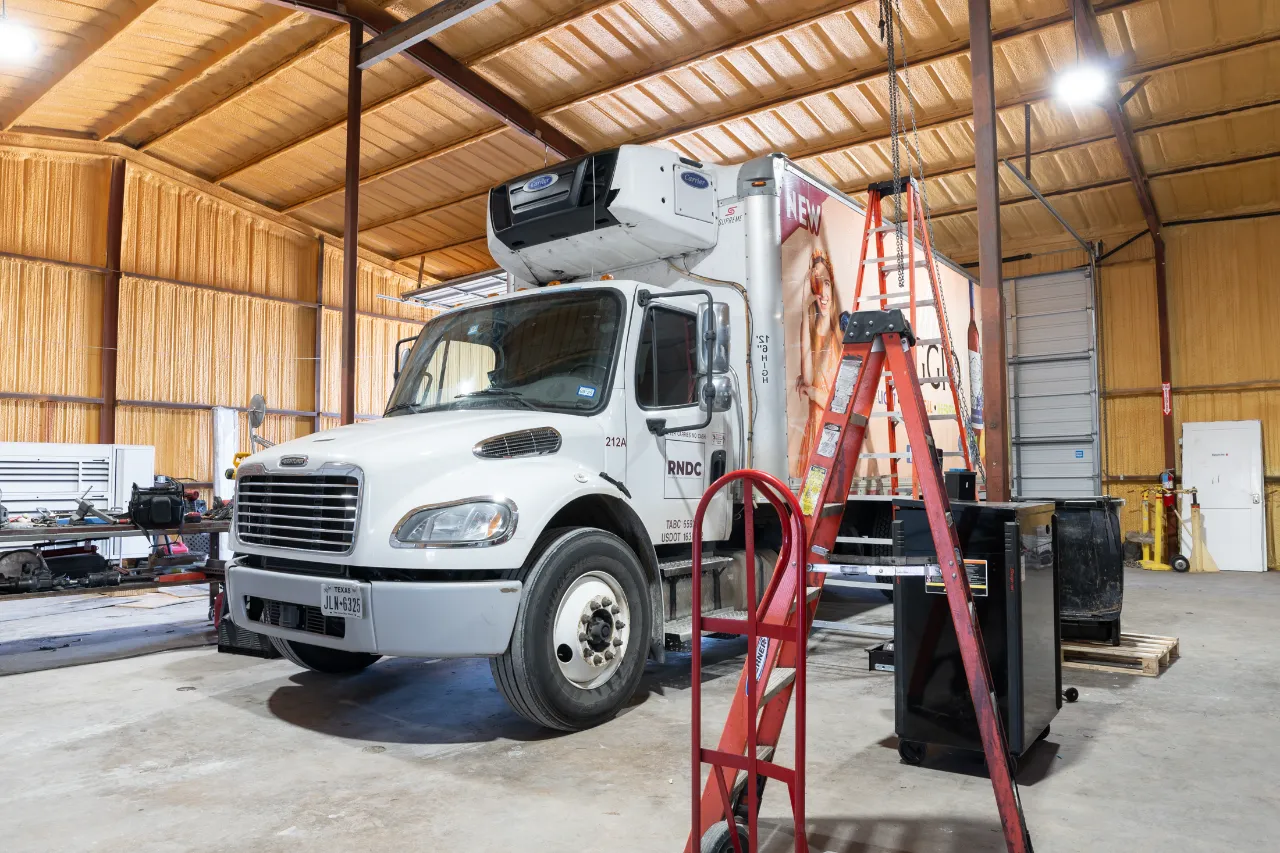Keeping Your Cool: Preventive Maintenance Tips for Reefer Trailers
Reefer trailers are vital for transporting temperature-sensitive freight like seafood, produce, and pharmaceuticals. They usually break down due to small, preventable issues. Implementing preventive maintenance ensures reliability, reduces downtime, and safeguards cargo.


For carriers transporting temperature-sensitive freight, the reefer trailer is a vital part of the supply chain. Whether the cargo is frozen seafood, fresh produce, pharmaceuticals, or other perishable items, maintaining exact temperature control is crucial. Reefer trailer breakdowns rarely happen suddenly; more often, they result from small, preventable issues that haven't been addressed. Implementing a structured preventive maintenance program is the best way to ensure equipment reliability, reduce costly downtime, and protect cargo integrity.
Understanding Reefer Trailer Systems
A modern refrigerated trailer combines several components to control temperature. The diesel-powered refrigeration unit uses a compressor, condenser, evaporator, and refrigerant circulation system. These elements work together with the trailer’s insulation and airflow design to keep temperatures consistent. Any disruption in one part can impact the entire system, highlighting the need for thorough inspections instead of focusing on isolated components.
Scheduled Fluid and Filter Service
The reefer unit’s small diesel engine needs engine oil, coolant, and fuel filters to run efficiently. Contaminated or low fluids can cause overheating, wear, and eventual failure. Key recommendations:
- Change engine oil at the manufacturer’s recommended intervals to keep everything lubricated and reduce friction.
- Keep coolant levels and quality maintained to ensure proper temperature control in both the engine and refrigeration system.
- Replace fuel filters regularly to avoid debris blocking fuel flow.
Adhering to a strict service schedule for these consumables is essential for prolonging unit life and ensuring optimal performance.
Mechanical and Electrical Inspections
Belts and hoses undergo constant wear. Belts operate vital parts like the alternator and compressor, while hoses carry coolant and refrigerant under pressure. Electrical integrity is equally important for system control and monitoring. Inspection priorities:
- Replace belts that have cracks, fraying, or are excessively stretched.
- Inspect hoses for soft spots, bulges, or leaks.
- Inspect all electrical connections for corrosion, looseness, or damage, paying particular attention to battery cables and control panel wiring.
Addressing these issues proactively helps prevent in-service failures and costly roadside repairs.
Preserving Airflow Efficiency
Even temperature distribution relies on proper airflow within the trailer. Blocked or obstructed air passages can create hot spots, leading to localized spoilage. Maintenance measures:
- Maintain clean evaporator and condenser coils for optimal heat transfer.
- Verify that fans are functioning smoothly without any unusual noise or vibration.
- Ensure cargo loading practices permit unobstructed airflow, avoiding direct contact with vents or walls.
Maintaining Seals and Insulation
A well-sealed and insulated trailer preserves cooling capacity, reduces fuel consumption, and minimizes wear on the refrigeration unit. Routine checks:
- Check door gaskets for cracks, flattening, or gaps.
- Test seal integrity using a resistance test (e.g., paper pull test).
- Inspect interior insulation for signs of damage or deterioration.
Monitoring for Early Warning Signs
Operators should be vigilant in identifying operational anomalies, including:
- Variable temperature readings
- Extended cooldown periods
- Unusual mechanical noise
- Increased fuel use
- Control panel alarms
Prompt attention to these indicators can often prevent complete system failures.
Professional Preventive Maintenance
While in-house checks are useful, regular inspections by trained technicians offer an extra layer of protection. Professional service may include:
- Refrigerant pressure testing
- Calibration of temperature regulation systems
- Complete electrical diagnostics
- Replacing aging or borderline components
These inspections guarantee the reefer unit stays compliant with operational and regulatory standards.
Conclusion
Reefer trailer maintenance is an investment in operational reliability, regulatory compliance, and customer satisfaction. Through disciplined fluid servicing, mechanical inspections, airflow management, and seal preservation, operators can greatly reduce the risk of equipment failure and cargo loss. In the competitive logistics industry, consistent performance is not optional — it is a requirement.
To safeguard your cargo and ensure operational efficiency, book a preventive maintenance inspection with Duzzy’s Roadside Service in Murrayville, IL. Our technicians deliver thorough, dependable service to keep your reefer trailer in top condition throughout the year.
